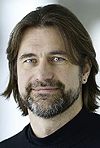 The Dreuw group has an established track record in developing quantum chemical methods for the investigation of excited states of medium-sized to large organic molecules. Over the last years, in particular the algebraic diagrammatic construction scheme for the polarization propagator has been developed further and implemented efficiently into available software. Thereby, a research tool for the computational investigation of organic photochemistry has been established allowing not only for the computation of excitation energies and absorption spectra but moreover for a comprehensive study of photochemical processes like fluorescence, photo-initiated reactions, intersystem crossing, two-photon absorption spectra, excited-state absorption in the gas phase as well as in condensed media. For the latter, we have developed a suitable polarizable continuum model for the description of solvation, as well as a frozen-density embedding scheme for more static media like organic films or protein environments. These methods as well as all other available computational technology is employed in the Dreuw group to investigate challenging photochemical problems in the area of chemistry, biophysics and material science.
The Dreuw group has an established track record in developing quantum chemical methods for the investigation of excited states of medium-sized to large organic molecules. Over the last years, in particular the algebraic diagrammatic construction scheme for the polarization propagator has been developed further and implemented efficiently into available software. Thereby, a research tool for the computational investigation of organic photochemistry has been established allowing not only for the computation of excitation energies and absorption spectra but moreover for a comprehensive study of photochemical processes like fluorescence, photo-initiated reactions, intersystem crossing, two-photon absorption spectra, excited-state absorption in the gas phase as well as in condensed media. For the latter, we have developed a suitable polarizable continuum model for the description of solvation, as well as a frozen-density embedding scheme for more static media like organic films or protein environments. These methods as well as all other available computational technology is employed in the Dreuw group to investigate challenging photochemical problems in the area of chemistry, biophysics and material science.
The PhD students involved in the suggested projects will gain a deep knowledge in electronic structure theory as well as in the physical principles of photochemistry as well as spectroscopy. In addition, they will get familiar with most modern uncaging technologies devised by the experimental groups of the graduate college. The proposed projects will be closely interwoven with the projects of Wachtveitl, Heckel, Bredenbeck and Burghardt.
